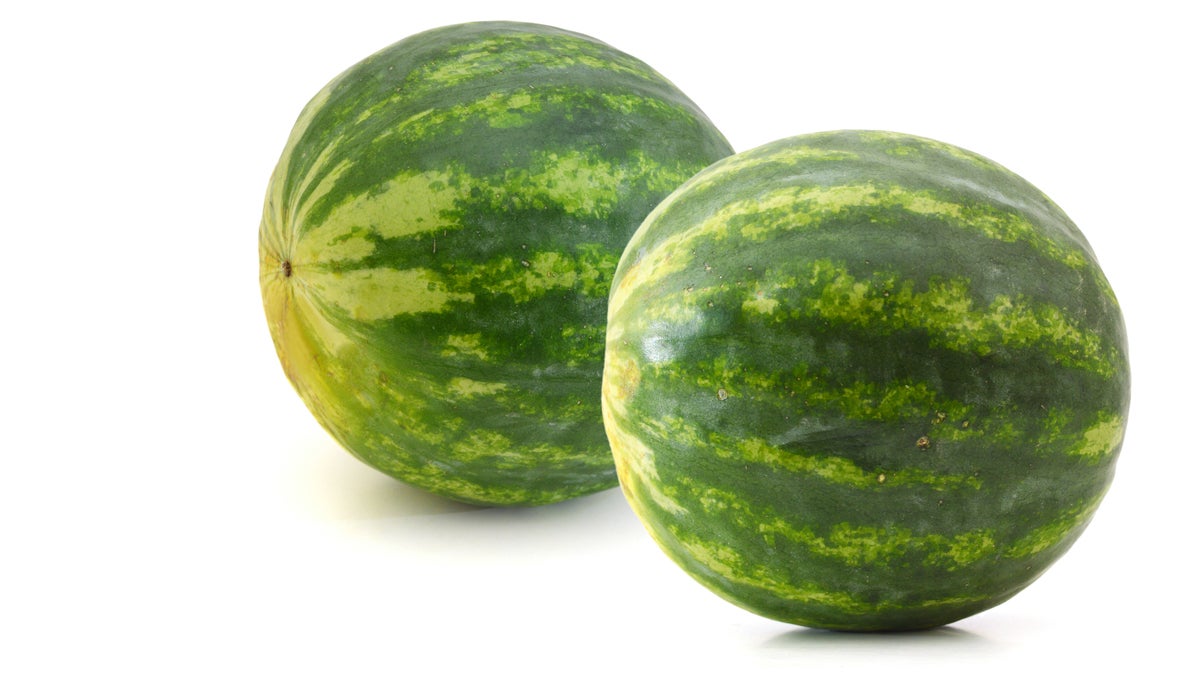If these breasts could talk: A woman’s stroll down mammary lane

(Watermelons image courtesy of Shutterstock.com)
I tore a small piece of paper from my college notebook and wrote with a purple pen, “I was hoping you’d start groping.” Then I tucked it into my bra, left side, near my heart. What a long way you’ve come, I thought, remembering that just a couple of years earlier, I had stuffed bobby socks into my Cousin Carol’s hand-me-down bras, impatiently waiting for my breasts to grow. Now they were well-developed, and I’d been waiting for the right moment to invite my new college sweetheart to start getting to know them.
All through our date, dinner and a movie, I smiled inwardly, anticipating the moment of discovery. When we finally started to make out, I was thrilled when Ray’s long fingers reached into my bra.
“What’s this?” he exclaimed, pulling out the note.
“It’s for you,” I replied, beaming.
Ray read it and laughed. “I’m going to keep this in my wallet forever,” he said.
Remembering that night recently led me to think back upon the “autobiography” of my breasts.
Finding the freedom
After college, my brother took me to a nude beach in San Francisco. Although I’d always thought of myself as a free spirit, I was shocked to find that I wasn’t comfortable enough to whisk off my bikini.
I vowed that one day I would feel the freedom and acceptance of self, which I imagined enabled those around me on the beach to disrobe in public. The man doing yoga poses at the water’s edge. The woman riding by on a horse. The couple lying entwined on a blanket.
“Why don’t you do life modeling at the Philadelphia Museum of Art?” an artist friend suggested some time later when I was between professional jobs. Here was an opportunity to make good on my vow!
Unlike the way I felt on the nude beach in California, I was totally comfortable being naked at the Philadelphia Museum of Art. Many years of bodywork and meditation had given me the self-acceptance that I had sought. As I shed my robe, dance movements and yoga postures easily flowed out of me. My voluptuous breasts swung and flopped.
Was I embarrassed? No way. It was liberating!
Agony and ecstasy
Pleasure and freedom, alas, were not the only emotions I experienced when it came to my breasts. “You are at high risk for breast cancer,” a specialist told me when I was in my mid-thirties. I was childless. I had cystic breasts. There was a history of breast cancer in my family. “I suggest you have both breasts removed as a prophylactic,” he advised.
This was a pioneering suggestion for the 1970s. Although I considered myself progressive, it was too radical for me. I decided instead to live with the pain of cystic breasts and the fear of breast cancer.
My mother had a mastectomy at 50, leaving a cave in her chest that scared me. (Reconstructive surgery was not an option in that era). After I turned 50, myself, during a routine doctor’s visit, I heard the words, “You’ll need a biopsy on your right breast. There is something suspicious.”
The bright red gash of the resulting incision looked like a lip that didn’t know whether to laugh or cry. Thankfully, it was benign! How much easier to live with a scar on my breast than a cave in my chest.
Being childless not only had an impact on my breast health, but upon my emotional well-being. I longed to express unconditional love by holding a child close to my breast in that tender, maternal way.
At 55, I married a man who had children, one of whom eventually provided us with two granddaughters.
When they visited us as young girls, the three of us would get on my bed to watch a movie. “Can we snuggle with you?” they’d plead, then rest their little heads on my breasts. These moments lying with them, as I stroked their heads, finally allowed me to experience the maternal nurturing nature of breasts.
When I die, I plan to donate my body to science. How much richer the education of the medical students studying me would be, if my breasts could talk!
I think of a line from Clarissa Pinkola Estés’ book “Women Who Run with the Wolves.”
“Like a sponge filled with water, anywhere the flesh is pressed, wrung, even touched lightly, a memory may flow out in a stream.”
WHYY is your source for fact-based, in-depth journalism and information. As a nonprofit organization, we rely on financial support from readers like you. Please give today.

